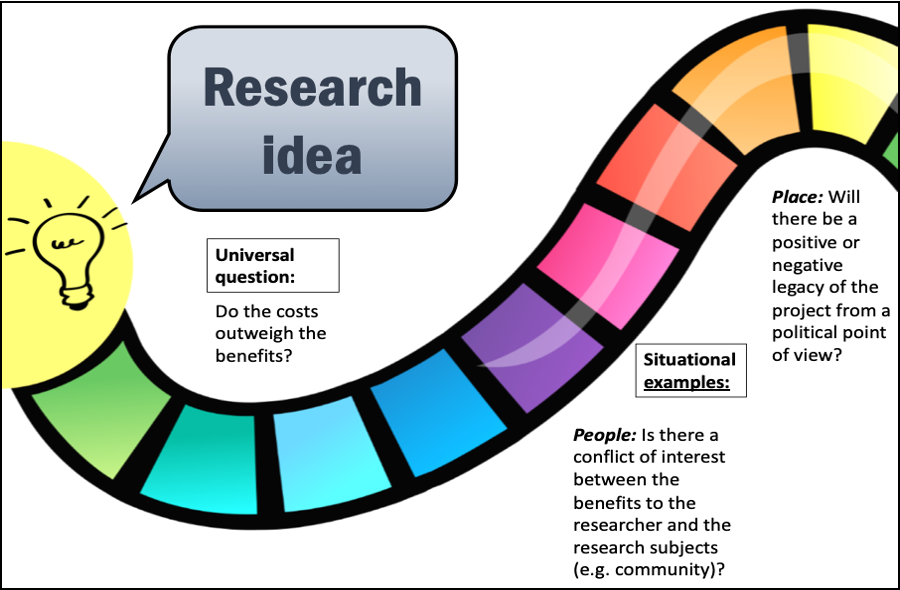|
Stage 1 RESEARCH IDEAS |
The early stages of exploring a research idea are pivotal and require an ethical lens. Doing so ensures each stage of the research journey is based on a solid foundation.
A research idea is a powerful thing – it starts a journey that can achieve great benefits, cause great harm, or draw people and resources into a wasted journey. It is important to begin with an ethical orientation to ensure that we ask the right question of the right people, in the right way, at the right time, so that an ethical outcome is possible from the outset. |
|||
|
|
||||
|
Being alert to ethical dilemmas |
||||
|
What harm could this research question bring? What benefits could be enabled?
|
Supporting considerations:
|
|||
|
Working towards solutions |
||||
|
Place |
People |
Principles |
Precedent |
|
|
Consider and address the potential for harm and opportunities by carefully considering all aspects of local and global context that are influencing the framing of the research question. Consider potential place-based, strengths-based solutions to ethical challenges associated with the research question. This may include reframing the question. |
There will be different views about whether a research idea is ethical - it is important to invite feedback on your ideas from diverse sources. Whether a research idea is considered ethical may change over time, or with changing context. We need to be alert to this change and have ways of monitoring for change. Identify any conflicts of interest or differences in priorities between the key researcher, research partners and research participants (e.g., community) Consider together possibilities for addressing or minimising possible harm and for maximising potential benefits of the research question. |
Consider the potential legacy of our research question in the future. There have been many examples where research has had an ethical intention but, from a historical perspective, it comes to be seen as unethical (e.g., colonialist research in first nations communities). Consider context-relevant values that may assist in pre-empting poor outcomes based on unethical research questions and to maintain accountability if ethical challenges become evident at a later date. |
Listen to what has been done, is being done and some of the challenges with the current status quo which may help to shape the research question in an ethical way. |
|
Body
